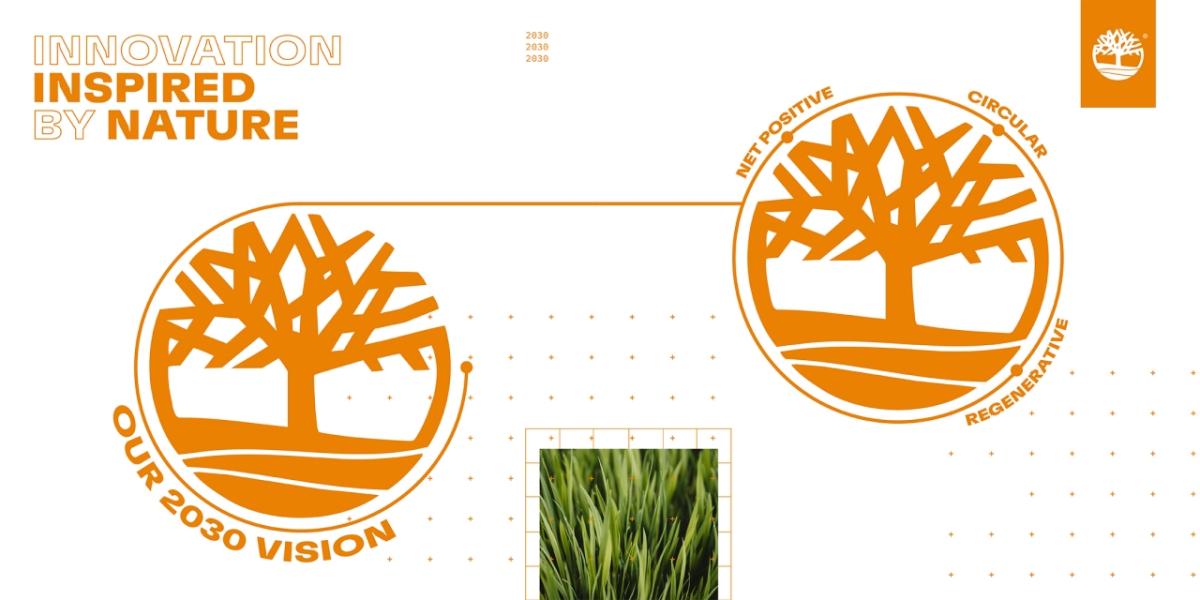Timberland Announces Bold Goal for Products to be Net Positive by 2030, Continues Pursuit of a Greener Future
Brand will focus innovation on two paths inspired by nature: Regenerative Agriculture and Circular Design

STRATHAM, N.H., September 1, 2020 /3BL Media/ – In a bold move to address the environmental impact of the fashion industry, Timberland today announced a goal for its products to have a net positive impact on nature by 2030 -- giving back more than it takes. Given Timberland’s outdoor heritage and longstanding commitment to protect nature, the brand is turning to nature for inspiration, driving innovation through regenerative agriculture and circular design.
In pursuit of its net positive vision, Timberland has set two specific, measurable goals to achieve by 2030:
- 100% of products to be designed for circularity, and
- 100% of natural materials to be sourced from regenerative agriculture
“The environment today is in a degraded state. As a footwear and apparel brand, we are part of the problem,” said Colleen Vien, director of sustainability for Timberland. “For decades Timberland has worked to minimize our impact, but it’s time to do better than that. Imagine a boot that puts more carbon back into the land than was emitted during production. By following nature’s lead, and focusing on circular design and regenerative agriculture, we aim to tip the scales to have a net positive impact – to go beyond sustainability and help nature thrive. We are incredibly excited about this journey, and hope to inspire the industry as a whole to work together and change the trajectory of our collective future.”
Through circular product design, Timberland strives to achieve zero waste, working toward zero impact. By sourcing all its virgin natural materials through regenerative agriculture, the brand believes it can push past net zero and have a net positive impact on nature.
Product Circularity
In nature, everything has a use and a reuse -- nothing goes to waste. It’s a closed loop. By 2030, Timberland’s goal is for all of its products -- across footwear, apparel and accessories -- to be designed for circularity. On the front end, products will be made using materials that would have otherwise gone to waste (e.g., plastic bottles, scrap leather, scrap wool). Products will also be designed to be recyclable at “end of life,” so they can be disassembled and made into something new.
Regenerative Agriculture
Timberland has set a goal for all natural materials used in its products to be sourced through regenerative agriculture by 2030. Regenerative practices mimic nature. They allow animals to roam and graze in their natural patterns, giving the land a chance to rest and heal. And they ensure a variety of crops, replicating the diversity found in nature. These practices enable the land to pull carbon out of the atmosphere and efficiently store it in the ground, rebuilding the structure of the soil and leading to healthy, hydrated, fertile ground – and ultimately, net positive impacts for the land and the farmers.
Timberland is working to build a robust regenerative leather supply chain in the U.S. Australia, and Brazil. The brand recently announced a partnership with the Savory Institute to fund research into the tangible benefits of regenerative agricultural practices. This fall Timberland launches its first collection of boots made using Regenerative Leather, with plans to scale significantly in the coming seasons. This leather was sourced from Thousand Hills Lifetime Grazed regenerative ranches in the U.S. through sourcing partner Other Half Processing.
Beyond leather, Timberland is working with pioneering regenerative farmers to pilot new regenerative rubber, cotton, wool, and sugarcane supply chains in pursuit of its 2030 goals.
“In and of itself, nature is balanced. Ecosystems work together in perfect harmony,” said Vien. “Modern civilization challenges this state, but as we’ve seen time and again, nature has the innate power to restore and regenerate itself when given the chance. And we as humans can act as stewards. That’s our vision for 2030 – to get carbon back in the soil where it belongs, and ultimately give back more than we take.”
Timberland has long been a leader in responsible innovation. As a founding member of the Leather Working Group (LWG) in 2005, the brand helped drive the adoption of industry-wide environmental best practices at tanneries around the world. Today, Timberland sources almost exclusively from tanneries that achieve a gold or silver rating from the LWG. Timberland also raised the bar for responsible design when the brand introduced its original Earthkeepers® boot in 2007, made with recycled PET linings and recycled rubber soles. In 2010, the brand followed up with its first foray into circular design with the Earthkeepers 2.0 boot – designed to be fully disassembled for recycling at the end of its life. This fall, Timberland reintroduces the Earthkeepers platform as its ultimate expression of eco-innovation.
For more information about Timberland’s commitment to better product, stronger communities and a greener world, visit the brand’s responsibility site.
About Timberland
Founded in 1973, Timberland is a global outdoor lifestyle brand based in Stratham, New Hampshire, with international headquarters in Switzerland and Hong Kong. Best known for its original yellow boot designed for the harsh elements of New England, Timberland today offers a full range of footwear, apparel and accessories for people who value purposeful style and share the brand’s passion for enjoying – and protecting – nature.
At the heart of the Timberland® brand is the core belief that a greener future is a better future. This comes to life through a decades-long commitment to make products responsibly, protect the outdoors, and strengthen communities around the world. To share in Timberland’s mission to step outside, work together and make it better, visit one of our stores, timberland.com or follow us @timberland. Timberland is a VF Corporation brand.
Contact:
Ameara Harb
Porter Novelli
290 Congress Street
6th Floor, Boston MA 02210
617 939 8318
Ameara.Harb@porternovelli.com

